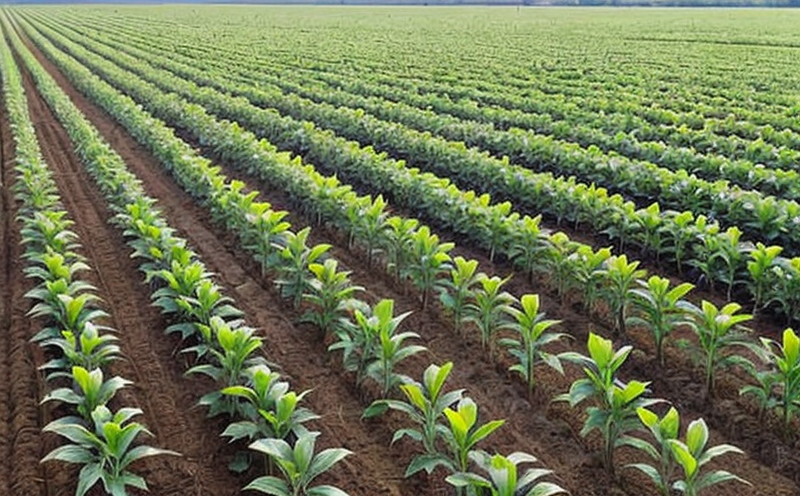Agricultural & Food Import Testing
The agricultural and food import testing sector is a crucial component of global trade facilitation. Ensuring that imported products meet stringent quality, safety, and regulatory standards is essential for protecting public health, maintaining market integrity, and fostering sustainable agriculture practices.
Government regulations and international standards such as ISO 21507, IEC 62346, and EN 12845 provide comprehensive frameworks to guide the testing processes. These tests are not only essential for regulatory compliance but also play a vital role in enhancing consumer trust and confidence.
Agricultural imports encompass a wide range of products from grains and oilseeds to fruits, vegetables, and processed foods. Each product category has its unique set of parameters that need to be tested, including:
- Microbiological testing (bacteria, fungi, viruses)
- Toxicology assessments
- Residue analysis for pesticides and veterinary drugs
- Nutritional content verification
- Contaminant checks including heavy metals and mycotoxins
The testing process involves a series of steps, from the initial sample collection to final report generation. Sample preparation is critical; it ensures that the samples are representative and free from contamination. This can involve washing, cutting, or grinding, depending on the product type.
Instrumentation used in these tests includes advanced spectroscopy techniques, chromatography equipment, and microbiological culturing systems. The accuracy of test results is paramount; thus, strict adherence to international standards is necessary to ensure reliable outcomes.
The acceptance criteria for agricultural and food imports are stringent and vary based on the importing country's regulations. For instance, the European Union (EU) has set specific limits for pesticide residues in imported fruits and vegetables as outlined in Regulation EC 396/2015. Similarly, the United States Food and Drug Administration (FDA) enforces rigorous testing protocols under the Federal Food, Drug, and Cosmetic Act.
Understanding these regulatory frameworks is crucial for importers to ensure that their products meet all necessary requirements. Failure to comply can result in significant penalties, including product recalls, fines, and even bans on imports.
In summary, agricultural and food import testing is a multifaceted process that encompasses various aspects of quality assurance, safety, and regulatory compliance. By adhering to international standards and best practices, laboratories like Eurolab can provide reliable test results that support safe and sustainable global trade.
Eurolab Advantages
At Eurolab, we pride ourselves on providing comprehensive agricultural and food import testing services tailored to meet the unique needs of our clients. Our team of expert scientists, state-of-the-art laboratories, and advanced instrumentation ensure that every test is conducted with precision and accuracy.
We offer a range of testing services, including:
- Microbiological testing
- Toxicology assessments
- Residue analysis for pesticides and veterinary drugs
- Nutritional content verification
- Contaminant checks (heavy metals, mycotoxins)
Our services are supported by our commitment to strict adherence to international standards such as ISO 21507, IEC 62346, and EN 12845. This ensures that all test results are reliable and can be trusted by regulatory bodies and consumers alike.
We understand the importance of timely reporting and strive to provide our clients with accurate and actionable data within a reasonable timeframe. Our expert team is dedicated to providing personalized service, ensuring that each client receives the attention they need for their specific testing requirements.
Why Choose This Test
- Comprehensive Testing: We offer a full suite of tests to ensure complete coverage of regulatory and safety standards.
- Advanced Instrumentation: Our laboratories are equipped with the latest technology, ensuring accurate results every time.
- Expertise in International Standards: Our team is well-versed in international testing standards such as ISO 21507 and EN 12845.
- Timely Reporting: We provide quick turnaround times without compromising on quality.
Competitive Advantage and Market Impact
By choosing Eurolab for your agricultural and food import testing needs, you gain a competitive edge in the global market. Our services help ensure that your products meet or exceed international standards, thereby enhancing consumer trust and satisfaction.
We understand that maintaining compliance with changing regulations can be challenging. Our team of experts works closely with our clients to stay abreast of these changes and provide guidance on how to adapt testing protocols accordingly. This proactive approach helps ensure that your products remain competitive and in line with global market demands.
In addition, by choosing Eurolab, you are supporting a sustainable and responsible approach to trade facilitation. Our commitment to quality and safety not only benefits your business but also contributes positively to the broader agricultural community.





